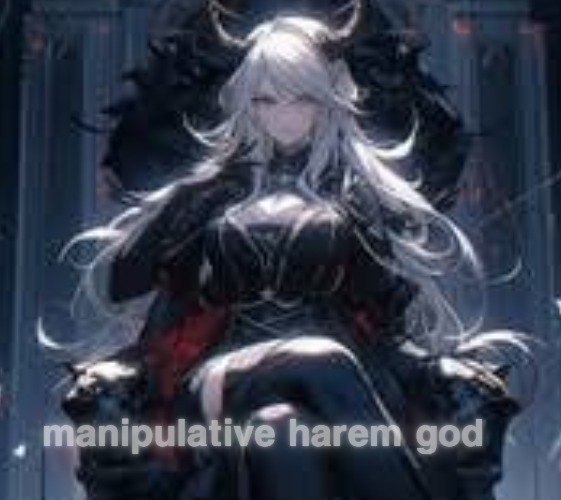The concept of the “manipulative harem god” has grown increasingly popular in modern media, particularly in the world of anime, manga, light novels, and even web novels. The term typically refers to a central character, often male, who possesses the ability to manipulate others—usually women—into forming a harem around him. This character archetype is both intriguing and controversial, raising questions about morality, power dynamics, and human psychology.
In this comprehensive analysis, we will delve deep into the character of the “manipulative harem god,” exploring its origins, its appeal, and the ethical implications surrounding it. We’ll also consider the case of Zhang Wei, a fictional character who epitomizes this archetype, to understand the psychological and societal factors that contribute to the creation of such characters. Our goal is to go beyond the surface and offer fresh insights into this fascinating yet morally complex phenomenon.
Contents
- 1 Understanding the Archetype: Who Is the Manipulative Harem God?
- 2 Zhang Wei: The Tragic Origins of a Manipulative Harem God
- 3 The Dark Side of the Manipulative Harem God
- 4 The Evolution of the Manipulative Harem God in Modern Media
- 5 The Future of the Manipulative Harem God
- 6 FAQs About the Manipulative Harem God
- 6.1 1. What is a manipulative harem god?
- 6.2 2. Why are manipulative harem gods popular in modern media?
- 6.3 3. Is the manipulative harem god always portrayed as a villain?
- 6.4 4. What are the ethical implications of the manipulative harem god archetype?
- 6.5 5. How does Zhang Wei embody the manipulative harem god archetype?
- 7 Conclusion: The Duality of the Manipulative Harem God
Understanding the Archetype: Who Is the Manipulative Harem God?
Defining the Manipulative Harem God
At its core, the “manipulative harem god” is a character who uses charm, deceit, and psychological manipulation to create and maintain a harem—a group of devoted followers, often of the opposite sex, who are emotionally or romantically attached to him. Unlike traditional harem protagonists who may stumble into relationships through coincidence or sheer luck, the manipulative harem god is a master of social dynamics, using his understanding of human nature to control those around him.
Key Traits and Characteristics
- Charisma and Charm: The manipulative harem god often possesses an irresistible charisma that draws others to him. This charm can be natural or cultivated, but it is always used strategically to manipulate others.
- Emotional Intelligence: These characters are highly attuned to the emotions and desires of others. They know exactly what to say and do to elicit the desired response, whether it be loyalty, love, or submission.
- Moral Ambiguity: One of the most defining traits of the manipulative harem god is his moral ambiguity. He often operates in a gray area, where his actions can be seen as both justified and reprehensible, depending on one’s perspective.
- Control and Power: The ultimate goal of the manipulative harem god is control. Whether it’s over people, situations, or outcomes, these characters seek to assert their dominance in subtle or overt ways.
The Appeal of the Manipulative Harem God
The appeal of this archetype lies in its complexity. Unlike more straightforward characters, the manipulative harem god offers layers of intrigue. Audiences are often drawn to the mystery and unpredictability of these characters. There’s a fascination with their ability to bend others to their will, a skill that many may secretly envy or fear. Additionally, the manipulative harem god challenges traditional notions of heroism and villainy, presenting a more nuanced figure that blurs the lines between right and wrong.
Zhang Wei: The Tragic Origins of a Manipulative Harem God
A Brief Background of Zhang Wei
Zhang Wei’s story is a poignant example of how tragedy and trauma can shape a person into a manipulative figure. Orphaned at the age of eight, Zhang Wei was forced to flee his village, living in constant fear of being caught by the authorities. This early experience of loss, fear, and survival deeply influenced his psyche, leading him to develop a complex set of behaviors aimed at ensuring his safety and control over his environment.
The Evolution of Zhang Wei
As Zhang Wei grew older, his experiences taught him that power was essential for survival. He learned to read people’s emotions and predict their actions, using this knowledge to his advantage. Over time, he became adept at manipulating those around him, using charm, deception, and even intimidation to get what he wanted. What began as a survival mechanism eventually evolved into a way of life, transforming Zhang Wei into a classic example of the manipulative harem god.
Zhang Wei’s Harem: A Web of Deception
Zhang Wei’s harem is not just a collection of romantic interests; it is a carefully curated group of individuals who serve various purposes in his life. Each member of his harem is chosen for their unique abilities, connections, or emotional vulnerabilities, all of which Zhang Wei exploits to maintain his power and control. His relationships with these individuals are complex and multifaceted, often involving a mix of genuine affection, calculated manipulation, and emotional blackmail.
Psychological Analysis of Zhang Wei
Zhang Wei’s behavior can be understood through the lens of psychology, particularly in terms of attachment theory and trauma response. His early loss and subsequent fear of abandonment likely contributed to a disorganized attachment style, characterized by a desperate need for control in relationships. This need manifests in his manipulative behavior, as he seeks to preemptively avoid any potential loss or betrayal by keeping those around him under his influence.
The Dark Side of the Manipulative Harem God
Ethical Implications
The character of the manipulative harem god raises significant ethical questions. Is it ever justifiable to manipulate others, even if the manipulator believes it’s for the greater good? What are the consequences of such behavior on the manipulated individuals, and how does it affect their autonomy and agency? These questions are particularly relevant in the context of fiction, where the manipulative harem god is often portrayed in a sympathetic or even heroic light.
The Impact on Relationships
The relationships formed by a manipulative harem god are inherently unequal and often exploitative. The power imbalance created by manipulation can lead to toxic dynamics, where the manipulated individuals may lose their sense of self or become emotionally dependent on the manipulator. In extreme cases, these relationships can lead to psychological harm, as the manipulated individuals may experience confusion, guilt, and a loss of autonomy.
The Moral Ambiguity of the Manipulative Harem God
One of the most intriguing aspects of the manipulative harem god is his moral ambiguity. Unlike traditional villains, who are clearly defined by their evil actions, the manipulative harem god often operates in a gray area. His actions may be seen as both good and bad, depending on one’s perspective. For example, he may manipulate someone to achieve a noble goal, such as saving a loved one or protecting the innocent. However, the means by which he achieves these goals are often questionable, leading to a complex moral dilemma.
Societal Reflections
The manipulative harem god can be seen as a reflection of societal anxieties about power, control, and relationships. In a world where power dynamics are increasingly scrutinized, this character archetype taps into deep-seated fears about manipulation and exploitation. At the same time, it also reflects a fascination with power and the ability to control others, a theme that resonates with many people’s desires for influence and autonomy.
The Evolution of the Manipulative Harem God in Modern Media
The Rise of Antiheroes
The rise of the manipulative harem god is part of a broader trend in modern media towards antiheroes—characters who defy traditional heroic norms and exhibit morally ambiguous behavior. These characters are often more relatable and realistic than their purely heroic counterparts, as they reflect the complexity of human nature. The manipulative harem god fits neatly into this trend, offering a character who is both compelling and morally complex.
The Influence of Cultural Narratives
The manipulative harem god is also influenced by cultural narratives, particularly those related to power and gender dynamics. In many cultures, there is a long-standing tradition of powerful men accumulating harems or groups of devoted followers, often through manipulation or coercion. This tradition has been adapted and reinterpreted in modern media, leading to the creation of characters like Zhang Wei, who embody these age-old power dynamics in a contemporary context.
The Appeal of Power Fantasy
One of the reasons the manipulative harem god is so popular in modern media is that he represents a power fantasy. In a world where many people feel powerless or constrained by societal norms, the manipulative harem god offers an escape—a character who can bend others to his will and achieve his desires without being bound by conventional morality. This appeal is particularly strong in genres like anime and manga, where power fantasies are a central theme.
The Future of the Manipulative Harem God
Potential for Subversion
As the manipulative harem god becomes more prevalent in modern media, there is potential for this archetype to be subverted or reinterpreted in new and interesting ways. For example, future stories might explore the consequences of manipulation more deeply, focusing on the emotional and psychological toll it takes on both the manipulator and the manipulated. Alternatively, the manipulative harem god could be portrayed as a tragic figure, whose need for control ultimately leads to his downfall.
The Role of the Audience
The future of the manipulative harem god also depends on the audience. As viewers and readers become more sophisticated and critical in their consumption of media, there may be a demand for more nuanced portrayals of this character. Audiences may begin to question the ethics of manipulation and demand stories that explore the moral complexities of the manipulative harem god in greater depth.
The Enduring Appeal of Complexity
Despite potential shifts in how the manipulative harem god is portrayed, it is likely that this archetype will continue to endure. The character’s complexity and moral ambiguity make him a compelling figure, one that resonates with audiences on multiple levels. As long as there is a fascination with power, control, and the darker aspects of human nature, the manipulative harem god will remain a prominent figure in modern media.
FAQs About the Manipulative Harem God
1. What is a manipulative harem god?
- A manipulative harem god is a character, often male, who uses charm, deceit, and psychological manipulation to create and maintain a harem—a group of devoted followers, usually of the opposite sex, who are emotionally or romantically attached to him.
2. Why are manipulative harem gods popular in modern media?
- The appeal of the manipulative harem god lies in his complexity and moral ambiguity. Audiences are drawn to the mystery and unpredictability of these characters, as well as the power fantasy they represent.
3. Is the manipulative harem god always portrayed as a villain?
- Not necessarily. While the manipulative harem god often exhibits morally ambiguous behavior, he is not always portrayed as a villain. In some stories, he may be depicted as an antihero or a tragic figure.
4. What are the ethical implications of the manipulative harem god archetype?
- The manipulative harem god raises significant ethical questions, particularly regarding the power imbalance in relationships and the potential for exploitation. These characters often operate in a gray area, where their actions can be seen as both justified and reprehensible.
5. How does Zhang Wei embody the manipulative harem god archetype?
- Zhang Wei is a fictional character who epitomizes the manipulative harem god. Orphaned at a young age and forced to survive on his own, Zhang Wei developed a deep need for control, which he achieves through manipulation and deceit.
Conclusion: The Duality of the Manipulative Harem God
The manipulative harem god is a character archetype that embodies the duality of power and desire. He is both a master manipulator and a tragic figure, whose need for control is driven by deep-seated fears and insecurities. As we have explored in this article, the appeal of the manipulative harem god lies in his complexity, his moral ambiguity, and the dark fantasy of power that he represents.
However, the ethical implications of this character cannot be ignored. The manipulative harem god challenges us to think critically about power dynamics in relationships, the nature of control, and the consequences of manipulation. As this archetype continues to evolve in modern media, it will be interesting to see how creators and audiences alike grapple with these issues, and how the manipulative harem god will be portrayed in the stories of the future.
The legacy of characters like Zhang Wei reminds us that behind every manipulative action lies a deeper story, one that often involves pain, loss, and the struggle for survival. In understanding the manipulative harem god, we gain insight not only into the character himself but also into the broader themes of power, control, and human nature.




